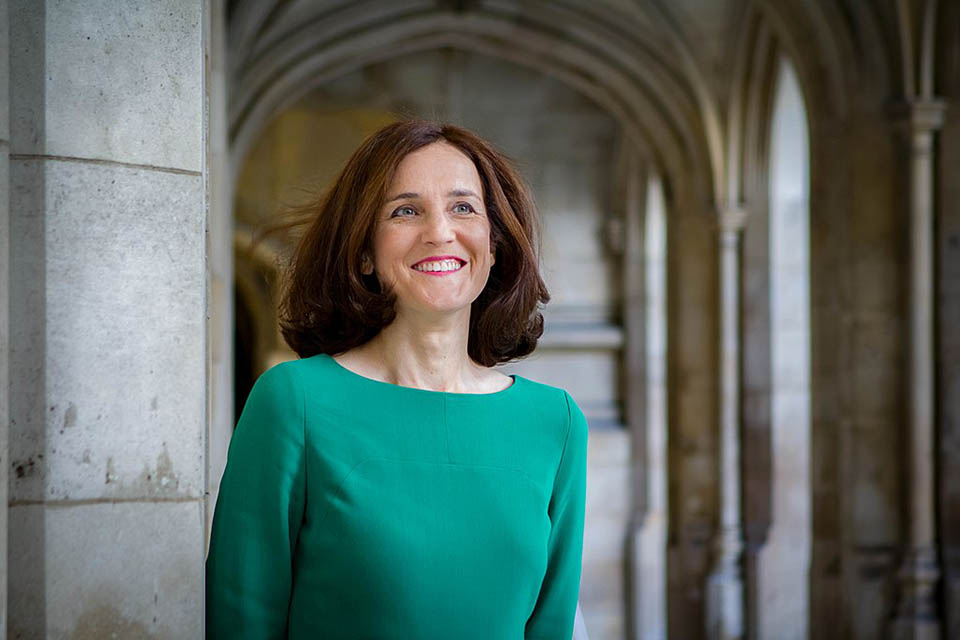Statement on the Northern Ireland cross-party talks
The Secretary of State responds to an Urgent Question on the talks process, following the Prime Minister’s visit to Northern Ireland

I am grateful for the opportunity to update the House on the cross-party talks which have been taking place in Stormont over the past 9 weeks.
In September the Government concluded that the time was right for a fresh round of political discussions to be convened with the parties in the Northern Ireland Executive.
The Irish Government reached the same conclusion.
The aim was to address some key issues which are hindering the effectiveness and credibility of devolution and the Stormont Executive.
These included:
- welfare reform and the Executive’s budget
- the so-called legacy issues of flags, parading and the past
- and reform of the political institutions.
The talks began at Stormont House on 16 October.
As a signatory to the Belfast Agreement, the Irish Government has been fully involved in all those matters where it too has responsibilities - consistent with the 3-stranded approach, which means that the internal arrangements for Northern Ireland are a matter for the UK Government and the parties.
I would like to take this opportunity to put on record my thanks for the positive and constructive role played throughout by the Irish Minister for Foreign Affairs, Charlie Flanagan TD, and his team of officials.
In addition I am very grateful for the support and wise counsel of my Honourable Friend the Member for South West Wiltshire, the Parliamentary Under-Secretary of State at the Northern Ireland Office.
The US Government has also been supportive and closely engaged with this process, in particular through Secretary of State Kerry’s representative, Senator Gary Hart.
So far around 90 hours of talks have taken place.
My Right Honourable Friend the Prime Minister and An Taoiseach, Enda Kenny TD, have been closely following the whole 9 week process, and on Thursday they joined the discussions directly.
They conducted an intensive round talks with the Executive parties, and I would like to thank both of them for their support, perseverance and ongoing commitment to this process.
Despite their efforts, by early Friday they made a realistic assessment that there was still insufficient consensus across the parties for a broadly based agreement to be reached.
Shortly afterwards, all 5 Executive parties declared their firm intention to continue to strive for a deal.
They asked me and Minister Flanagan to take part in a resumption of discussions on Friday afternoon, which we duly did.
Let me briefly set out to the House the outline of a deal put on the table on Thursday.
A draft Heads of Agreement was tabled including, firstly, a fresh approach to the past which puts the needs of victims and survivors at its heart. Secondly, devolved arrangements for adjudicating on parades, that would see Parades Commission replaced by a new authority. And thirdly, reforms to the institutions, such as support for those parties that might want to form an opposition within the Assembly.
The draft also sought a commitment from the Executive to press ahead with welfare reform - though with a number of flexibilities to reflect Northern Ireland’s circumstances. And to implement a serious efficiency programme to make long term savings.
This draft Heads of Agreement was the result of the work of both the UK and Irish governments … respecting the 3-stranded approach and we believe it represents a balanced package and a sound basis for cross-party agreement.
During the evening the Prime Minister also set out proposals to provide further financial assistance from the UK government.
This included flexibilities which would have given the Executive nearly a billion pounds of extra spending power to help them through their current difficulties and support their most important priorities.
It would also allow the devolution of corporation tax to go ahead; a change which just a few years ago seemed inconceivable and undeliverable is now within the grasp of Northern Ireland’s leaders, if they choose to take it.
Mr Speaker, the talks resume this week and the stakes are high.
All parties agree that if there’s no agreement before Christmas, we won’t get this close again for months or even years.
In particular, failure to agree a balanced final budget would leave the Executive increasingly unable to conduct even ordinary day-to-day business effectively.
So this week is crucial.
All of us have a responsibility to do whatever we can in the few days left to us.
The UK Government has shown it can compromise, even over hugely sensitive and difficult issues regarding the past, and even when resources are constrained by the need to deal with the deficit.
We will continue to do all we can to deliver agreement within the financial constraints in which are operating.
But the UK and the Irish Governments can only do so much.
Ultimately whether an overall agreement is reached is down to Northern Ireland’s political leaders.
They have a chance to show that once again they can move Northern Ireland forward towards a better future, where politics works, the economy grows and society is stronger and more united.
That is the prize on offer and I know that all the participants in the talks will have will have the support and goodwill of this House in our continuing efforts to seize it.